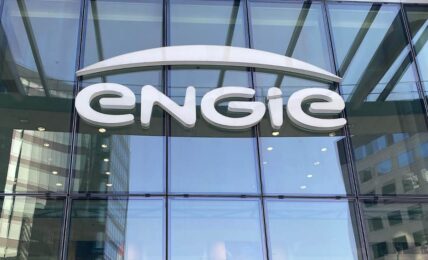Industrial products, solutions and technologies company Honeywell announced today the launch of UOP eFining technology, a new processing solution aimed at enabling the production of sustainable aviation fuel (SAF) from captured CO2 at scale.
The company also announced HIF Global as its first customer for the new technology, with the solution to be deployed at what is expected to be the world’s largest eFuels SAF facility.
Sustainable aviation fuel is seen as one of the key tools to help decarbonize the aviation industry, which currently accounts for 2-3% of global greenhouse gas (GHG) emissions. SAF is generally produced from sustainable resources, like waste oils and agricultural residues, providing substantial emissions reductions relative to current fossil-based jet fuels.
Demand for SAF is likely to rise dramatically over the next few years, as airlines turn to the technology as one of the key solutions to hit their climate goals, and as governments begin to mandate increased SAF use to achieve their own decarbonization ambitions. Last month, for example, lawmakers at the European Parliament and EU Council announced an agreement on new rules requiring a minimum SAF share of fuel at EU airports, rising to 70% by 2050.
Many current techniques used to produce SAF, however, may face difficulty in reaching the scale required to support these ambitions, with required feedstocks often in limited supply. eFuels, or electrofuels, address these feedstock-related issues by utilizing captured CO2 and green hydrogen, produced using renewable energy and water to produce eMethanol, which can be converted into fuels including eSAF, eGasoline, and eDiesel.
Lucian Boldea, President and CEO of Honeywell Performance Materials and Technologies, said:
“As a leader in renewable fuel technology, Honeywell recognizes that creating technologies that use new feedstocks is vital to long-term decarbonization of the aviation sector. The ability to use readily abundant CO2 to produce SAF is a transformational opportunity for this market.”
According to Honeywell, the new technology, which converts eMethanol into eSAF can reduce greenhouse gas emissions by 88% compared to conventional jet fuel. The eSAF can be used as a drop-in replacement fuel, without requiring changes to aircraft technology or fuel infrastructure.
The new HIF Global facility will be the company’s second eFuels facility. According to HIF, the facility is expected to recycle approximately 2million tonnes of captured CO2, to produce 180 million gallons of SAF per year.
Renato Pereira, CEO of HIF USA said:
“Honeywell and HIF Global together will transform recycled CO2 into a useful feedstock to replace fossil fuels in the very hard to abate aviation sector. At HIF Global, we view Honeywell’s UOP eFining technology as the new frontier in sustainable aviation fuels and we look forward to deploying it to decarbonize over 12 billion air passenger miles per year.”
The post Honeywell Launches Commercial-Scale Technology to Convert CO2 to Sustainable Aviation Fuel appeared first on ESG Today.



